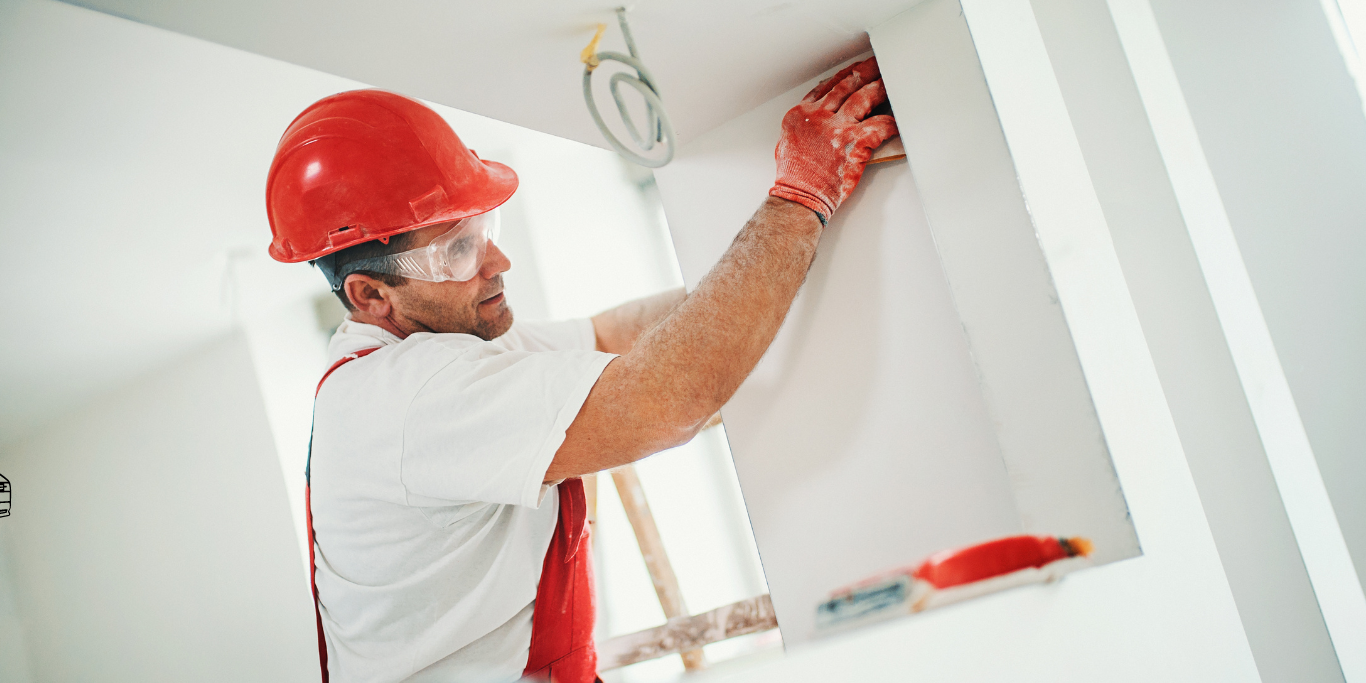Drywall installation is a critical aspect of any construction or renovation project. Whether you’re remodeling your home or constructing a new building, the quality of your drywall can significantly impact the overall aesthetics, durability, and value of the property. In Allen, TX, where attention to detail is paramount, choosing the right drywall installation services is crucial for achieving the desired results. This blog post explores the essential factors you should consider when deciding on drywall installation to ensure a seamless and successful project.
When deciding on drywall installation, it’s essential to consider factors such as the type of drywall material, the expertise of the installation team, and the timeline and budget constraints. By carefully evaluating these factors, you can ensure a smooth and successful drywall installation project that meets your needs and exceeds your expectations.
Types of Drywall Material
Gypsum Board:
Also known as drywall or plasterboard, gypsum board is the most commonly used material for drywall installation. It is affordable, easy to install, and provides excellent fire resistance properties, making it ideal for residential and commercial applications.
Fiberglass Mat Gypsum Board:
This type of drywall features a fiberglass facing instead of paper, providing enhanced moisture resistance and mold prevention. It is suitable for areas prone to moisture, such as bathrooms and kitchens.
Cement Board:
Cement board is a durable alternative to traditional gypsum board, offering superior resistance to moisture, mold, and impact. It is commonly used in wet areas like showers and exterior applications.
Expertise of the Installation Team
Experience and Training:
When selecting a drywall installation team, consider their level of experience and training. Look for contractors who have a proven track record of successful projects and are knowledgeable about the latest industry standards and techniques.
Attention to Detail:
A skilled installation team pays attention to every detail, from measuring and cutting the drywall to applying the finishing touches. They ensure precise installation to minimize seams, cracks, and other imperfections.
Communication and Collaboration:
Effective communication and collaboration between the installation team and the client are essential for a successful project. Choose contractors who are responsive, transparent, and willing to address any concerns or questions you may have.
Timeline and Budget Constraints
Project Planning:
Before starting the drywall installation, develop a detailed project plan that outlines the timeline and budget constraints. Factor in potential delays, material costs, and labor expenses to avoid unexpected surprises.
Efficiency and Productivity:
Choose an installation team that prioritizes efficiency and productivity without compromising quality. Look for contractors who utilize advanced tools and techniques to streamline the installation process and meet project deadlines.
Cost-Effective Solutions:
While quality should never be sacrificed for cost, it’s essential to find cost-effective solutions that align with your budgetary constraints. Consider factors such as material choices, labor costs, and potential savings opportunities to maximize value without exceeding your budget.
Quality Assurance Measures
Inspection and Testing:
Before finalizing the drywall installation, conduct thorough inspections and testing to ensure compliance with industry standards and local building codes. Address any issues or deficiencies promptly to avoid costly rework or repairs.
Warranty and Guarantees:
Choose contractors who stand behind their workmanship with comprehensive warranties and guarantees. This provides peace of mind knowing that any issues or defects will be promptly addressed at no additional cost to you.
Customer Satisfaction:
Ultimately, the success of a drywall installation project is measured by customer satisfaction. Choose contractors who prioritize customer service and satisfaction, ensuring that your needs and expectations are met every step of the way.
Environmental Considerations
Sustainable Practices:
Consider the environmental impact of your drywall installation by choosing contractors who employ sustainable practices and use eco-friendly materials whenever possible.
Waste Management:
Minimize waste and promote recycling by working with contractors who implement efficient waste management practices throughout the installation process.
Energy Efficiency:
Explore energy-efficient drywall solutions, such as insulated drywall, which can help improve the thermal performance of your property and reduce heating and cooling costs over time.
Long-Term Maintenance and Durability
Maintenance Requirements:
Consider the long-term maintenance requirements of different drywall materials and finishes. Choose options that are easy to clean and maintain to preserve the appearance and integrity of your walls over time.
Durability and Resilience:
Prioritize durability and resilience when selecting drywall materials, especially in high-traffic areas or environments prone to wear and tear. Investing in quality materials upfront can save you time and money on future repairs and replacements.
Future Flexibility:
Anticipate future needs and changes by choosing drywall solutions that offer flexibility and adaptability. Whether you’re planning future renovations or updates, selecting versatile drywall materials can help accommodate evolving requirements without significant disruption or expense.
FAQs
Q1: What are the benefits of choosing professional drywall installation services?
Opting for professional drywall installation services offers numerous benefits. Firstly, professionals have the expertise and experience to ensure precise measurements, accurate cutting, and seamless installation, resulting in a high-quality finish. Additionally, professional installers have access to advanced tools and techniques, allowing for efficient and timely completion of the project. Moreover, reputable contractors typically provide warranties and guarantees on their workmanship, giving you peace of mind and assurance in the quality of the installation. Overall, choosing professionals for your drywall installation needs ensures superior results and saves you time, effort, and potential headaches in the long run.
Q2: How do I determine the right type of drywall material for my project?
Selecting the appropriate drywall material depends on various factors, including the location, environmental conditions, and desired performance characteristics of the project. For instance, in areas prone to moisture, such as bathrooms or kitchens, it’s advisable to choose moisture-resistant drywall materials like fiberglass mat gypsum board or cement board to prevent mold and water damage. Similarly, in high-traffic areas or spaces requiring enhanced durability, consider using impact-resistant drywall materials like cement board or specially reinforced gypsum board. Consulting with a professional drywall installer can help you assess your specific needs and recommend the most suitable material for your project.
Q3: What steps should I take to maintain and prolong the lifespan of my drywall installation?
Proper maintenance is essential for preserving the appearance and integrity of your drywall installation over time. Regular cleaning with a soft brush or vacuum can help remove dust, dirt, and debris that accumulate on the surface, preventing discoloration and deterioration. Additionally, promptly addressing any signs of damage, such as cracks, dents, or water stains, can prevent further deterioration and costly repairs. For areas exposed to moisture, such as bathrooms or basements, consider applying a waterproof sealant or paint to protect the drywall from moisture damage. Finally, periodic inspections and maintenance checks by professionals can identify potential issues early on and prevent them from escalating into more significant problems. By following these maintenance practices, you can prolong the lifespan of your drywall installation and ensure its long-term durability and performance.
Conclusion
In conclusion, several factors should be carefully considered when deciding on drywall installation in Allen, TX. By evaluating aspects such as the type of drywall material, the expertise of the installation team, timeline and budget constraints, quality assurance measures, environmental considerations, and long-term maintenance and durability, you can ensure a successful and satisfactory outcome for your project. For professional drywall installation and repair services in Allen, TX, trust MJ Workforce Solutions to deliver exceptional results that exceed your expectations. Contact us today to learn more!







